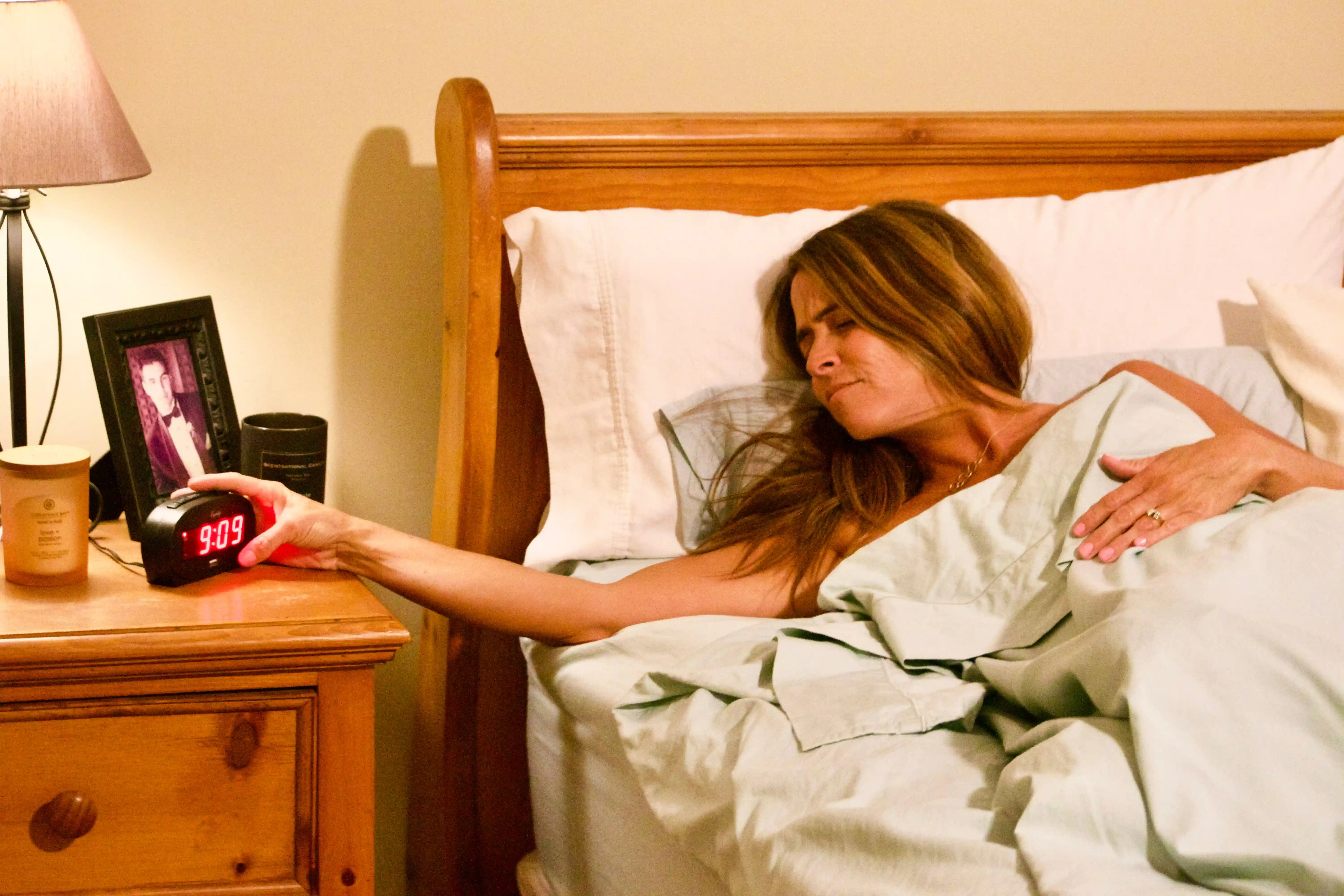Sleep is meant to be a time of rest and recovery, but for those struggling with depression, it can become anything but peaceful. One surprising symptom that may emerge is sleep talking—a behavior where individuals speak aloud during sleep, often without knowing it.
While occasional mumbling might seem harmless, persistent episodes can signal emotional turmoil happening beneath the surface. When sleep talking is tied to depression, it’s often the mind’s way of expressing unprocessed feelings.
This article explores how depression influences sleep talking and provides practical strategies to manage both for better mental health and sleep health.
What is Depression?

Depression is a common and serious mental health condition that affects how a person feels, thinks, and handles daily activities. More than just a feeling of sadness, depression can disrupt emotional well-being, physical health, and everyday functioning.
One of the most overlooked consequences of depression is its impact on sleep. Sleep and mood are deeply connected, and disruptions in one often affect the other.
Symptoms of Depression
- Persistent Sadness or Low Mood: A lasting feeling of emptiness, sorrow, or emotional dullness that can affect daily activities and relationships. This mood often persists for weeks or longer.
- Loss of Interest or Pleasure (Anhedonia): A marked disinterest in activities that were once enjoyable, such as hobbies, socializing, or eating. This can lead to emotional withdrawal and detachment.
- Feelings of Hopelessness or Worthlessness: A deep sense of despair, guilt, or self-criticism that makes the future feel bleak. These thoughts can damage self-esteem and motivation.
- Fatigue or Low Energy: Constant exhaustion that doesn’t go away with rest, making even simple tasks feel overwhelming. It often contributes to a lack of productivity.
- Sleep Disturbances: Trouble falling asleep, staying asleep, or sleeping too much. Sleep issues worsen mood, concentration, and overall mental clarity.
- Changes in Appetite or Weight: A noticeable increase or decrease in appetite, often leading to unintended weight gain or loss. Overeating or a complete loss of interest in food may occur.
- Difficulty Concentrating: Trouble focusing, remembering details, or making decisions. This mental fog can interfere with work, studies, and everyday tasks.
The Impact of Depression on Sleep Quality
Depression can cause significant disturbances in sleep patterns, and these disturbances can, in turn, worsen depressive symptoms. Sleep issues are often one of the first signs of depression and may persist even after mood symptoms improve.
- Insomnia: Many individuals with depression struggle with insomnia, finding it difficult to fall asleep, stay asleep, or wake up too early. This lack of restorative sleep can lead to fatigue, irritability, and decreased concentration.
- Hypersomnia: On the opposite end, some people experience hypersomnia, or excessive sleep. Despite sleeping long hours, they may still feel unrefreshed and struggle to stay awake during the day. Hypersomnia is more common in atypical depression.
- Fragmented Sleep: Depression can also cause disrupted or fragmented sleep, where individuals wake up frequently throughout the night. These disturbances break up the natural sleep stages, preventing the brain and body from fully resting.
What Is Sleep Talking?

Sleep talking, or somniloquy, is a sleep disorder characterized by talking during sleep without being aware of it. It can range from quiet mumbling to loud, clear speech. Although often harmless, it can sometimes be associated with other sleep disturbances or emotional stress.
Symptoms of Sleep Talking
Sleep talking can vary greatly in frequency and intensity. Some people may talk occasionally during particularly stressful times, while others experience chronic episodes. Key symptoms include:
- Mumbling or Whispering: Soft, barely audible speech during sleep that may be difficult to interpret. These murmurs are often unclear and can sound like fragmented thoughts. Listeners may struggle to determine whether actual words are being spoken.
- Clear Speech: Coherent sentences or phrases that make sense, often surprising to listeners. This type of speech may resemble a conversation, complete with pauses and inflection. It can give the impression that the sleeper is awake and engaged in dialogue.
- Emotional Outbursts: Sudden expressions of anger, sadness, or excitement during sleep speech. These episodes may include crying, laughing, or heated arguments. They often reflect unresolved stress or emotional processing during dreams.
- Shouting or Yelling: Loud vocalizations that may startle bed partners or housemates. This type of sleep talking may occur during night terrors or intense dreams. It can sometimes be alarming or mistaken for a medical emergency.
- Unintelligible Noises: Random sounds, gibberish, or slurred speech that lacks clear meaning. These sounds are usually involuntary and don’t follow any linguistic pattern. They may be triggered by dream activity or neural misfiring during sleep stages.
- Repetitive Phrases or Words: Saying the same word or phrase multiple times in a row. This can mimic patterns seen in waking speech disorders or anxiety. The repetition may occur rhythmically and is often short-lived.
- Sleep Disruption in Bed Partners: Partners may experience disturbed sleep due to loud or sudden talking episodes. This can lead to frustration, fatigue, and even the need for separate sleeping arrangements. In some cases, partners may also feel emotionally affected by the content of the speech.
Other Causes of Sleep Talking
While sleep talking can sometimes occur randomly, it is often connected to underlying physical or psychological triggers. Understanding these causes can help identify patterns and manage the behavior more effectively.
Stress
High stress levels can over activate the brain, even during sleep, leading to verbal outbursts. Stress-related sleep talking may increase during emotionally challenging periods or after mentally exhausting days.
Fevers
Fevers can cause temporary confusion and brain activity that affects sleep patterns. Children, in particular, may talk during sleep when running a fever, especially during deep or restless sleep.
Sleep Disorders
Conditions like night terrors, sleep apnea, and REM sleep behavior disorder can trigger vocalization during sleep. These disorders disrupt normal sleep architecture, making abnormal speech or movement more likely.
Anxiety
An anxious mind may remain active at night, producing anxiety, vivid dreams, or restless sleep. This overactivity can result in verbal expressions of worry, fear, or tension while asleep.
Bipolar Disorder
Mood episodes, particularly mania, can lead to irregular sleep and heightened mental activity. During these episodes, individuals may experience more intense or frequent sleep talking.
Genetic Predisposition
Sleep talking tends to run in families, suggesting a hereditary component. If parents or siblings experience it, other family members may also be more likely to develop the behavior.
High stress levels can over activate the brain, even during sleep, leading to verbal outbursts.
Stress-related sleep talking may increase during emotionally challenging periods or after mentally exhausting days.
PTSD

People with PTSD often experience intense dreams or nightmares linked to trauma. These emotional flashbacks can manifest as sleep talking, often with distressed or alarming content.
Substance Use
Alcohol, recreational drugs, or certain medications can disrupt the brain’s sleep regulation. These substances may increase the likelihood of unusual sleep behaviors, including talking.
How To Manage Sleep Talking Caused by Depression

Sleep talking linked to depression is often a signal that the brain is processing emotional distress during rest. Managing the root causes of depression and improving sleep hygiene can help reduce or even eliminate these nighttime vocalizations.
Treat Underlying Depression
Addressing the depression itself is the first step toward resolving sleep-related symptoms like talking during sleep. Effective treatment often requires a combination of therapy, medication, and lifestyle changes.
- Cognitive Behavioral Therapy (CBT): CBT helps reframe negative thought patterns and manage emotional triggers that may surface during sleep. It’s proven effective in treating both depression and sleep disturbances simultaneously.
- Medications: Antidepressants prescribed by a mental health professional can balance brain chemistry and reduce depressive symptoms. Some medications may also promote more stable, restorative sleep patterns.
- Lifestyle Modification: Incorporating physical activity, social interaction, and healthy eating can lift mood and support better sleep. Positive daily habits help reduce the mental burden that fuels both depression and nighttime disturbances.
Maintain a Sleep Diary
Tracking your sleep habits, emotional state, and episodes of sleep talking can reveal useful patterns.
This information can be shared with a healthcare provider to adjust treatment and identify triggers.
Create a Relaxing Bedtime Routine
Engaging in calming pre-sleep activities like reading, journaling, or light stretching helps signal the body it’s time to rest.
A consistent routine supports a smoother transition into sleep and may reduce emotional overflow during the night.
Reduce Stress
Managing stress levels through mindfulness, breathing exercises, or therapy reduces emotional arousal before bed.
Lower stress leads to more restful sleep and a decreased chance of disruptive behaviors like sleep talking.
FAQs
Is sleep talking hereditary?
Yes, sleep talking can run in families. A genetic predisposition may increase the likelihood of experiencing this condition.
Can sleep talking be dangerous?
Sleep talking is generally harmless, but if it occurs alongside other sleep disorders, it may require medical attention.
Does sleep talking indicate psychological issues?
Sleep talking alone is not an indicator of psychological issues, but it can be associated with stress, anxiety, or depression.
Can diet or medication influence sleep talking?
Yes, certain foods (especially those high in sugar or caffeine) and some medications can disrupt sleep patterns, increasing the likelihood of sleep talking.
When should I see a doctor about sleep talking?
If sleep talking is frequent, intense, or accompanied by other symptoms like sleepwalking, night terrors, or violent behavior during sleep, it’s a good idea to consult a sleep specialist.
Conclusion
Sleep talking caused by depression is more than a quirky habit—it’s often a reflection of unresolved inner struggles. By treating the root causes of depression and creating a healthier sleep environment, it's possible to reduce these nighttime disturbances and restore a sense of calm.
Karen Barnard
Karen is a Human Movement Science expert and a certified sports nutrition and massage therapist. At Sleepiverse, she combines her passion for human movement science and sleep health to educate herself and her readers about healthier sleep. In addition to writing articles, Karen manages a fitness studio offering private training, athletic conditioning, and sports massage therapy. She focuses on providing people with a holistic environment for people to reach their health goals, often incorporating stretch therapy to promote mental tranquillity and help people improve their sleep.


